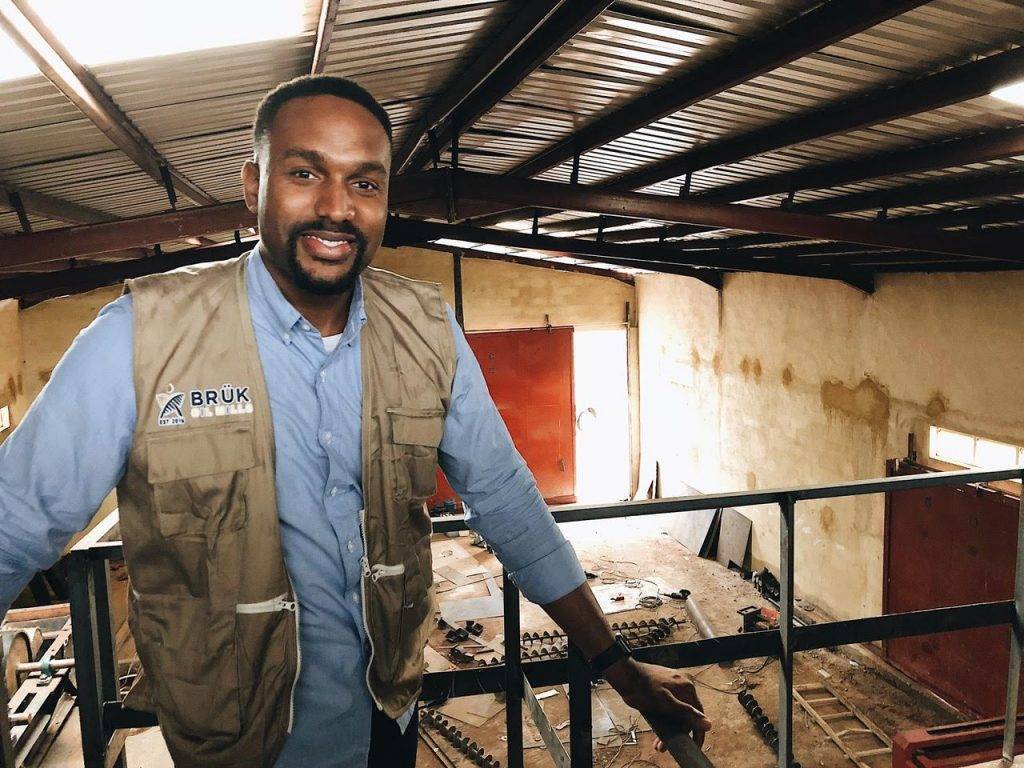Why A Nigerian MIT Graduate Turned Down 6-Figure Paychecks In The U.S. And Returned Home

There’s a certain allure that accompanies being one of the best graduating students in any educational institution for that matter, not to mention one as prestigious as the famous Massachusetts Institute of Technology (MIT), in Boston, U.S.A.
Finishing at the top end of your class from such an institution, to a reasonable extent, would imply that you get to wear the “Hot Prospect” label and enjoy the rare privilege of having your pick of six-figure job offers from top firms who would be tripping over themselves to have you put pen to paper. And that’s just for starters.
Well, that was pretty much the case for Nigerian techie, Obinna Ukwuani, who may have left everyone in shock when he opted to toe an entirely different line.

Source: LinkedIn
By turning his back on the lure of a fat paycheck that could well build a comfortable life to pursue a deep-seated passion that could have just as easily proved a fiasco in the end, he exhibited quite the courage.
Obinna Ukwuani is on a path to building Africa’s first STEM (Science Technology Engineering Mathematics) campus in Nigeria – a project that was borne out of the need to level the playing field and bridge the learning gap between young African students and their counterparts in the developed world.
The seed for the project was sowed some years ago, when Obinna was only a boy. Having lived most of his life in Washington D.C. where his parents had relocated the family to when he could barely form words, his folks thought it important that he paid a visit to his home country, Nigeria, to get a feel of his roots.
That meant Obinna returned to Nigeria where he completed both 8th and 9th Grades. The experience was an eye-opener for him in many ways, but none more so than the realisation of the problems bedevilling the school system in his homeland.
“I met up with my peers, the friends and classmates I’d met during my time there and it was shocking to see how far behind me they were. It was a very real experience for me,” says Obinna.
Most kids would simply revel in the knowledge that they had the edge over their school mates, but Obinna knew better. It was clear to him studying in the United States had given him an advantage and just about anyone could be just as good if they had the opportunities he’s had.
Rather than taking pleasure in the satisfaction that besting everyone else should normally bring, he felt sick to his stomach. To him, it was an “injustice.”
He returned to the United States with a hole in his heart; one he knew would not be filled until someone did something about the disparity. At the time, it didn’t occur to him that that “someone’ might as well be himself.
Back in the States, Obinna Ukwuani blitzed his way through high school, and his stellar academic was to earn him a place at MIT back in 2008.
All that time, he worried about students like him back home who would be hampered from going anywhere near their full potential due to the flaws in the system, and it wasn’t until freshman year that he realized he could just as well be the one to effect change.

And that
It was designed as a five-week residential program aimed at teaching creative problem solving, engineering principles, and programming to high school students during the summer.
Within three years, the academy coached up to 113 students from 17 states across Nigeria and Ghana on how to code and build robots, some of whom have since gained scholarships into American universities and are just as determined to further the teaching of STEM back home.
With Obinna overseeing the programme, and Shell Oil as its sponsor, a number of MIT students were also jetted off to Nigeria where they taught and mentored high school students.
Interestingly, the programme was also recognised at the Roxbury International Film Festival. Naija Beta; a documentary based on the program, took home the award for “Best Documentary Film.”
But the Nigerian techie seems to be far from done and is spoiling for more. After putting in some relentless work towards putting together a business plan and trying to sell it to potential investors for several months, it does look like he’s making some headway.
In January 2018, he partnered with the Bank of Kigali to launch Makers Robotics Academy Rwanda; the first-ever robotics Bootcamp in the country. The programme hosted 40 Rwandan high school students on an intensive three-week course facilitated by MIT students.

The Nigerian tech entrepreneur has also gone on to set up NESA by Makers; a brick-and-mortar new economy skills accelerator based in Lagos, Nigeria. It rolled out its first course; full-stack web development, in June 2017.
NESA by Makers aims to provide a learning environment that inspires trainers, as well as a rigorous curriculum that would transform students from novice coders to employable junior web developers within three months.
Through such initiatives, the Nigerian entrepreneur hopes to build capacity in young Africans which would bring about the unlocking of potential and the discovery of genius innovations that would put the continent on the technology map.
Obinna is determined to change the perception of Africa as a mere consumer of technology by helping to equip young creators with the tools with which they can develop novel technological solutions to some of society’s most-pressing problems.
Featured Image Courtesy: The Guardian